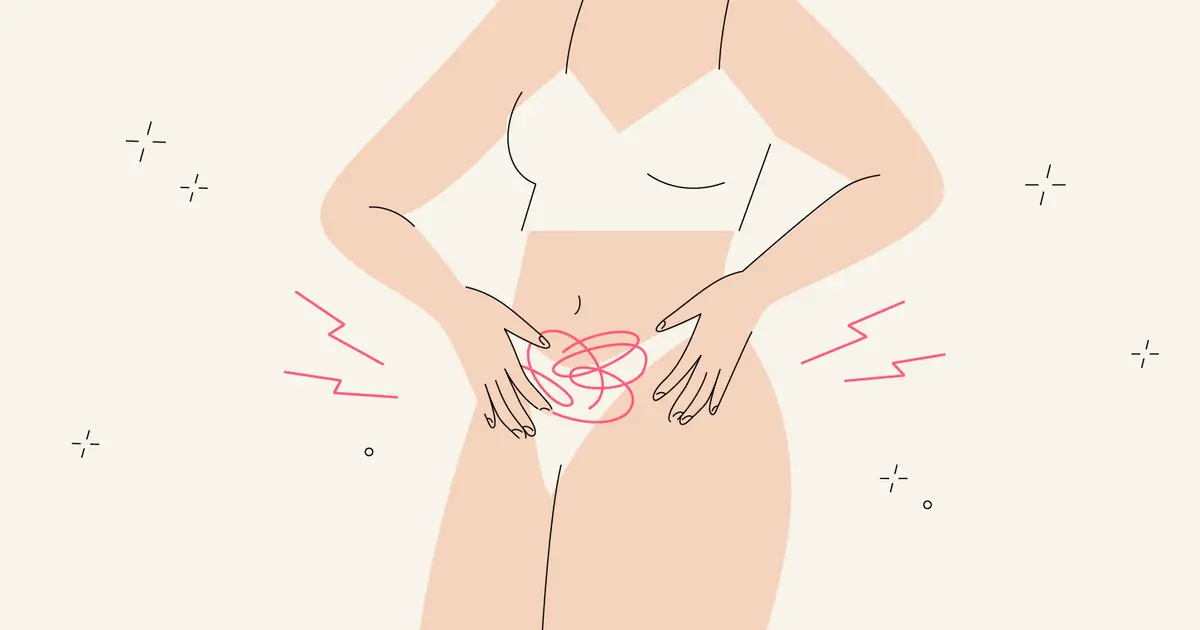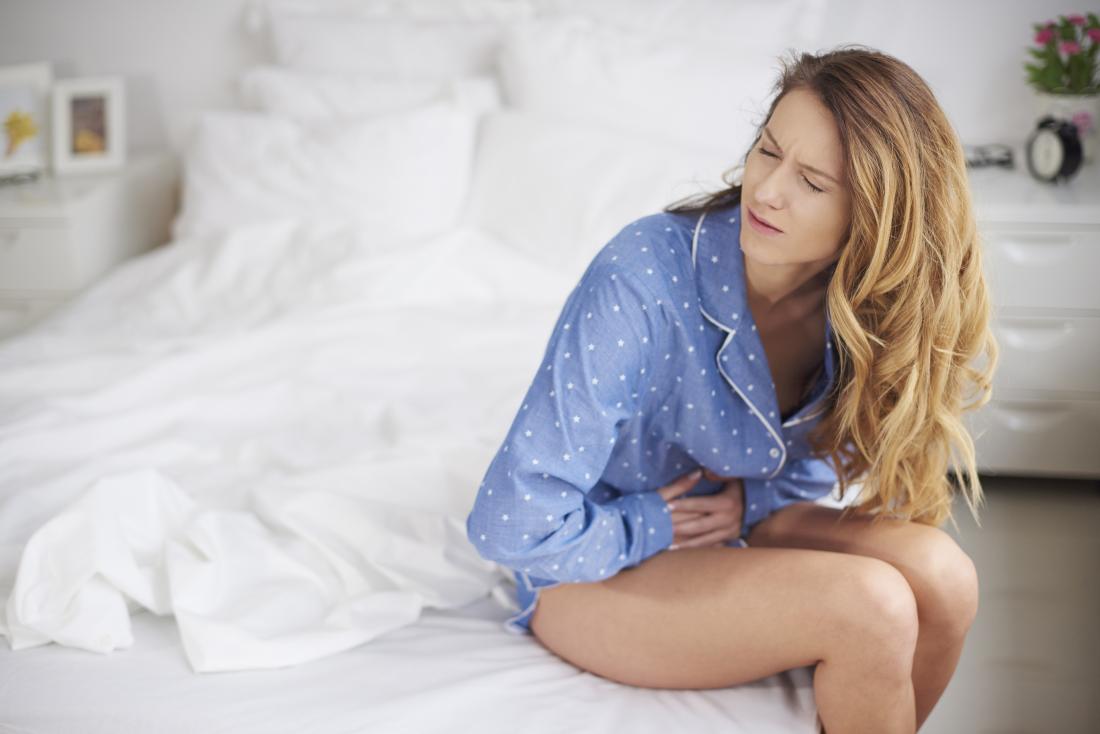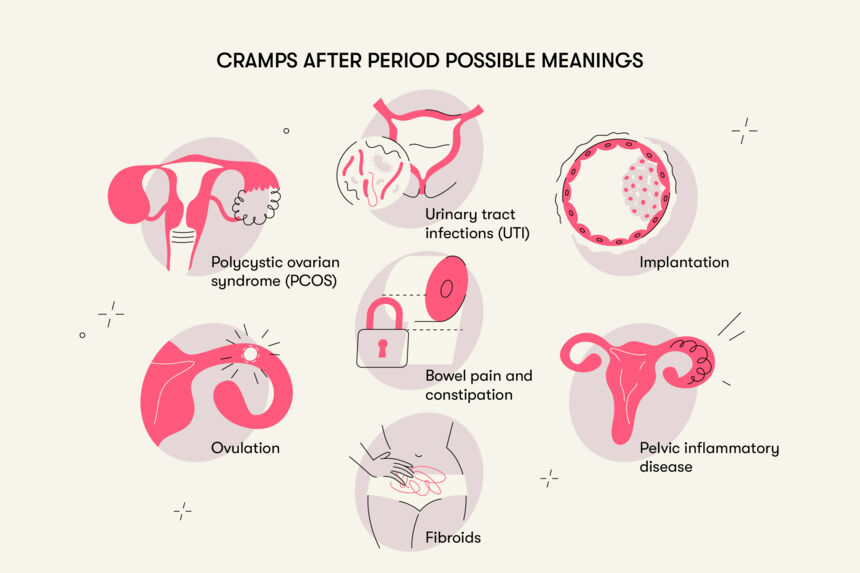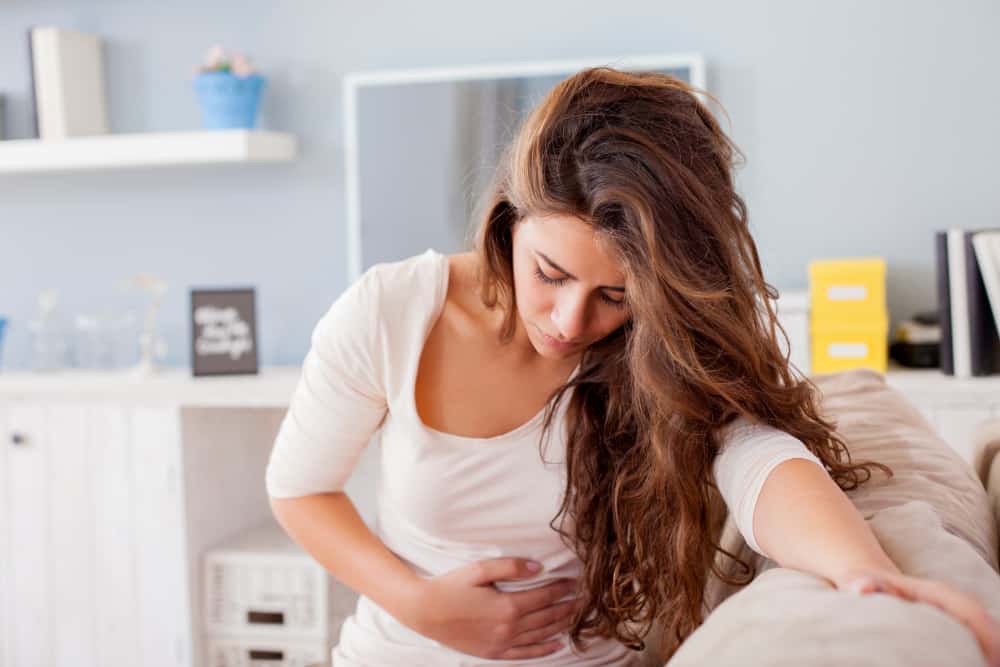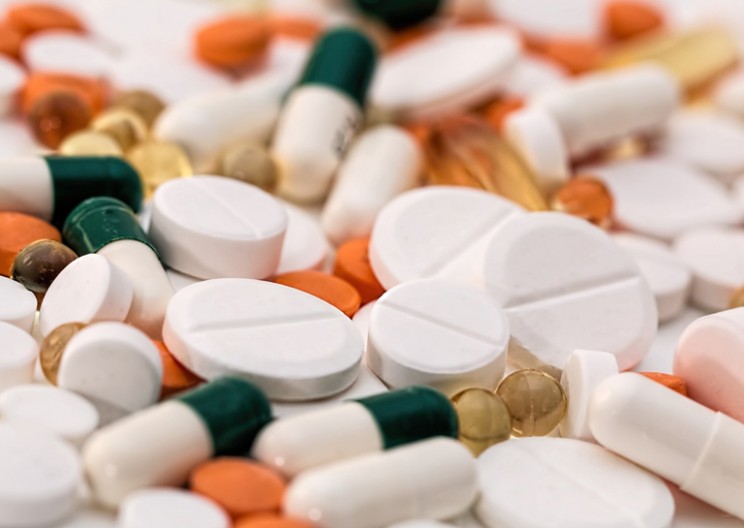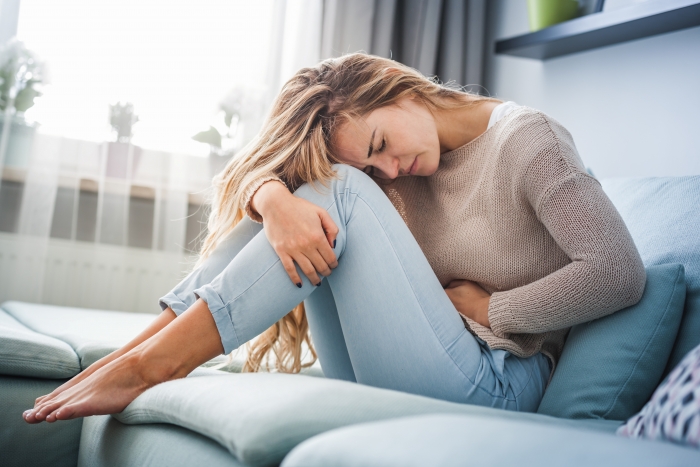Table of Contents
Many women suffer from abdominal cramping before or during their menstrual cycle. However, cramps after a period are possible. It is called Secondary dysmenorrhea. The term refers to painful cramping after your period. It is more common in adults.
These cramps after period are usually not dangerous. You must keep an eye on them. Post-menstrual cramps could be a sign of something more serious. Continue reading to learn about secondary dysmenorrhea symptoms, causes, and treatments.
What do cramps after period mean?
Various factors can cause cramps that occur after your period.
Secondary dysmenorrhea occurs when a reproductive disorder causes menstrual pain. Cramping may begin just before your period begins, become more intense, and continue after your period has ended in secondary dysmenorrhea. This type of cramping may appear later in life and worsen over time.
Suppose you have new cramps around the time. In that case, you expect your next period, especially if you’re vigorously trying to conceive, you may be encountering the implantation of a fertilized egg in your uterus.
And if you have abdominal pain for a few minutes to a day or two during your cycle, it could be ovulation cramping.
What does it feel during cramps after period?
Cramping is usually felt in your lower abdomen and back after your period. You might also feel pain in your hips and thighs.
Nausea and lightheadedness may accompany cramping and aching. You may also have abdominal bloating, constipation, or diarrhea.
The pain may be more intense and last longer than typical menstrual cramps. Cramps may also appear earlier in your menstrual cycle rather than just before your next period.
Due to implantation, you may soon experience early pregnancy symptoms such as nausea and tender breasts if you are cramping.
In a nutshell, many people experience the following symptoms in addition to their cramps:
- nausea
- bloating
- constipation
- diarrhea
- headaches
- dizziness
What causes cramps after period?
Cramping after period isn’t always serious. However, it could signify an underlying condition if you experience cramping pain that lasts longer than your menstrual cycle.
Cramps generated by the uterus contracting as it sheds its lining occurs directly before and during the period. This is known as primary dysmenorrhea, typically lasting 48 to 72 hours.
Secondary dysmenorrhea refers to cramps caused by something other than menstruation. They might occur at any point during the menstrual cycle.
Secondary dysmenorrhea may be normal, or it may require the attention of a doctor or specialist.
Here are some of the possible causes of cramps after a period:
-
Ovulation
An ovary releases an egg during ovulation so that a woman may experience cramps. Ovulation takes place at the midpoint of the menstrual cycle. These cramps after period are referred to as mittelschmerz.
Ovulation is a normal part of most menstrual cycles. It may or may not be felt by the individual.
Ovulation cramps usually affect only one side of the body. They may last a few minutes or a few days and will fade on their own.
On one side, you may experience a dull, cramp-like sensation. The pain may strike suddenly and sharply. Vaginal discharge or light bleeding may also occur. Consult your doctor if your pelvic pain worsens or you develop a fever or nausea.
-
Pregnancy
Mild uterine cramps can be an early indicator of pregnancy. These cramps after period are caused by implantation when a fertilized egg or embryo attaches itself to the uterine lining.
Implantation cramps are mild and temporary, frequently accompanied by dark red or brown spotting, also known as implantation bleeding. This bleeding happens around the time the next period is due.
Other pregnancy symptoms, such as breast heaviness, increased urination, and mood changes, may occur during this time. The correct test for pregnancy is at home or in a doctor’s office.
-
Ectopic conception
An ectopic conception occurs when the fertilized egg attaches to something other than the uterus.
Ectopic pregnancies begin normally, but women may soon experience severe cramping and pain in the uterus.
Other signs and symptoms may include:
- unusual bleeding
- sharp, frequently severe pelvic pain
- shoulder ache
- nausea
An ectopic conception can cause the fallopian tube rupture due to the pressure involved. This can result in heavy bleeding, which can cause fainting, shock, or lightheadedness. A ruptured fallopian tube necessitates immediate medical attention.
Ectopic conceptions are uncommon, accounting for approximately 2% of all pregnancies.
-
Incapacity of the uterus
In some cases, blood remains in the uterus after the period. When this occurs, the uterus contracts to remove the extra blood, and during that time, cramps after period occur.
These contractions can cause cramping and brown or black spots as the old blood is pushed out.
Symptoms usually decrease within a few days as the body eliminates the remaining blood.
-
Endometriosis
Endometriosis is a disorder where the uterine cell lining grows outside the uterus. This can result in excruciating cramps or even before and during your period.
Inflammation and pelvic pain may accompany cramping. The pain can be severe and occur during or after sex, bowel movements, or urination. This persistent pain could be felt in your lower back.
Endometriosis symptoms include:
- Cramping that is painful before, during, and after menstruation and may be accompanied by lower back and abdominal pain
- discomfort during or after sex
- discomfort during bowel movements or urination
- a lot of bleeding during or between periods
- infertility
- fatigue
- constipation or diarrhea
- bloating
- nausea
Medication, hormone therapy, or surgery can all be used to treat endometriosis.
-
Adenomyosis
Due to adenomyosis, endometrial tissue grows in the uterine muscles rather than the uterine lining.
This thickens the uterine walls, resulting in particularly heavy menstrual bleeding and prolonged cramps after period.
Medication is used to treat adenomyosis. A hysterectomy may be necessary in some extreme cases.
-
Cysts in the ovaries
After the period has ended, cysts in the ovaries can cause cramps after period and bleeding.
Most cysts will go out on their own, but if they are particularly large, they may cause additional symptoms. Ovarian cysts can cause bloating and weight gain in the abdomen and pelvis. Spotting or bleeding may also occur before or after their period.
Medications or surgery are usually used to treat ovarian cysts.
-
Fibroids in the uterus
Fibroids are noncancerous, benign growths that can appear anywhere in the uterus. The symptoms vary according to the location, size, and the number of fibroids in the uterus.
Uterine fibroids can cause the following symptoms:
- erratic bleeding
- particularly heavy menstruation
- prolonged menstruation
- pelvic pressure or discomfort
- urinating difficulties or frequent urination
- constipation
Uterine fibroids can cause infertility in some cases. Medication, surgery, or a combination of the two is frequently used to treat them.
-
Cervical stenosis
Some women have a smaller cervix opening. This is known as cervical stenosis, which can slow the menstrual flow, causing painful pressure in the uterus.
You can treat cervical stenosis medically or surgically. Alternatively, an intrauterine device (IUD) may provide relief.
-
Pelvic inflammatory disease (PID)
Cramps after period are also caused due to PID. Pelvic inflammatory disease (PID) is caused by bacteria infecting female reproductive organs. Pain in the uterus or vagina and foul-smelling discharge can indicate a vaginal or uterine infection. PID may happen if the bacteria spread to further parts of the reproductive system.
Symptoms may be subtle initially, beginning with a sudden and persistent cramp-like pain in the abdomen. If not treated properly, PID can lead to death.
Other PID symptoms include:
- Vaginal discharge that is excessive or abnormal
- Lower abdominal or pelvic pain
- Menstrual irregularities
- Abnormal uterine bleeding
- Feeling unwell, as if with the flu
- general exhaustion
- symptoms of the flu, such as a fever or chills
- Intercourse pain, discomfort, or bleeding
- Fever, sometimes with chills
- Urination that is difficult or painful
- Bowel discomfort
Antibiotics are frequently used to treat PID. Sexually transmitted infections should be tested on all sexual partners.
Also Read: 15 Important Things You Should Know About Dabbing
What must you do if you have cramps after your period?
Consult with your practitioner. The treatments he or she will recommend will depend on the cause of your period cramps and may include:
- Pain relievers: Pain relievers can help you feel better. If you’re trying to conceive, consult your doctor because some pain relievers consumed around conception have been linked to an advanced risk of miscarriage.
- Birth control pills: Birth control medications are a standard treatment that your doctor may advise you to try first. If they fail, he or she may suggest a hormonal IUD or drugs known as gonadotropin-releasing agonists or antagonists.
- Laparoscopy: Laparoscopy is a surgical method used to diagnose and treat endometriosis and uterine fibroids. If hormonal therapy fails, especially if you’re trying to conceive, your doctor may recommend it.
- Magnesium and vitamin B1 supplements: Although there isn’t a lot of research to back up these claims, magnesium and vitamin B1 supplements may help with dysmenorrhea (period cramping).
- Acupuncture: Although research is limited, acupuncture is somewhat effective in alleviating dysmenorrhea.
- Regular exercise: Exercise regularly may help reduce the severity of period cramps.
How are cramps after period treated?
There are several methods for cramp relief. The majority of remedies are part of a healthy lifestyle:
- Find ways to pamper yourself and de-stress.
- Drink a surplus of water and eat a healthy diet.
- Stay away from alcohol, caffeine, and tobacco.
- Reduce or eliminate your intake of fatty and salty foods.
Exercise can also help pain relief by increasing blood circulation and reducing stress. Spend some time doing light exercises like stretching, biking, or walking.
You can relieve pain by taking an over-the-counter (OTC) pain reliever or nonsteroidal anti-inflammatory drugs (NSAID). Your doctor may also recommend oral contraceptives, which have been linked to less menstrual pain.
A massage or acupuncture treatment may also be beneficial. You can use vital oils to massage your lower abdomen gently. It is also thought that having an orgasm will help.
Check that you’re getting enough rest and sleep. Relax by using a heating pad or a hot water bottle. While performing relaxing or restorative yoga poses, you may want to apply heat to your abdomen or lower back.
It can also help to take a warm shower or bath and drink warm beverages, such as a cup of hot green tea.
When to consult the doctor about cramps after period?
Consult your doctor if your cramps interfere with your life every month or if they are getting worse. Check-in if you experience cramps for the first time after twenty-five.
If you’re attempting to conceive, your doctor can perform tests and advise you on how to prepare for a healthy pregnancy. If you have secondary dysmenorrhea caused by a condition such as endometriosis or fibroids, he or she can recommend treatments to address the underlying causes and help relieve your pain.
Don’t just accept that you must learn to live with cramps after your period. There may be an effective treatment available to alleviate the discomfort. It’s also a good thought to contact your doctor if you experience any unusual, sudden, or severe abdominal cramps or pain.
What is the prognosis for cramps after period?
Maintain a healthy lifestyle for a positive outlook. This contains a healthy diet, plenty of exercise, and stress-reduction techniques. Always consult your doctor before starting any treatment plan. You can also talk about the symptoms you want to get rid of.
You should see your doctor for a pelvic exam if your cramps do not improve or develop other symptoms. Your doctor can always recommend the best treatment plan and diagnose any underlying conditions for you.
Takeaway
Cramps after period vary in intensity and duration for each individual. They usually vary throughout your period, with the pain or discomfort diminishing after the first few days.
The cause of post-period cramping isn’t always obvious. Everybody is unique, and the reproductive system undergoes various changes due to hormonal shifts during your reproductive years.
Cramps after period are usually nothing to worry about, but if they annoy you, it’s worth visiting a doctor to get to the bottom of the problem.

